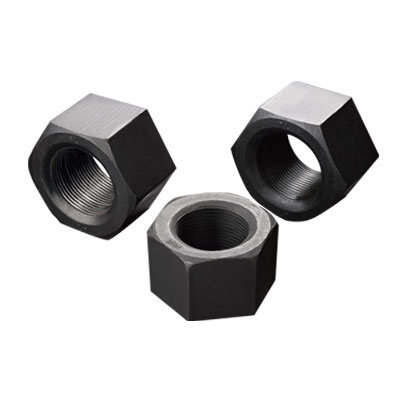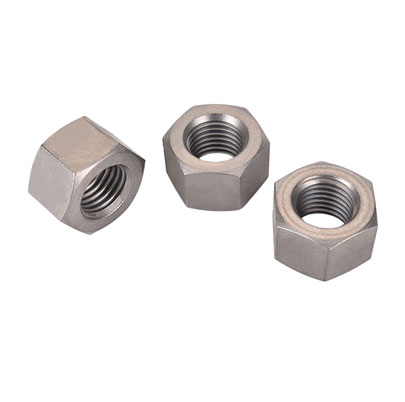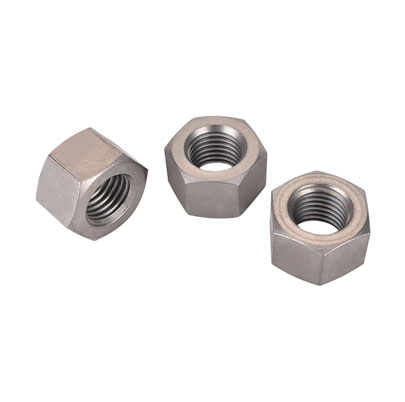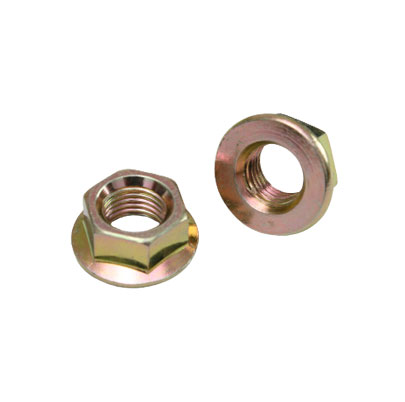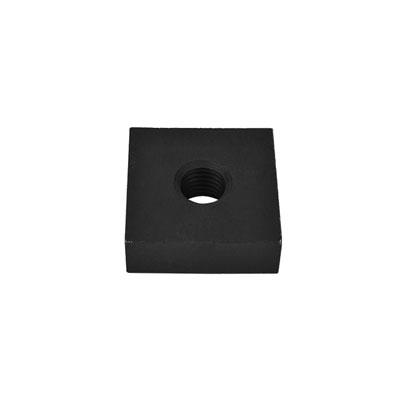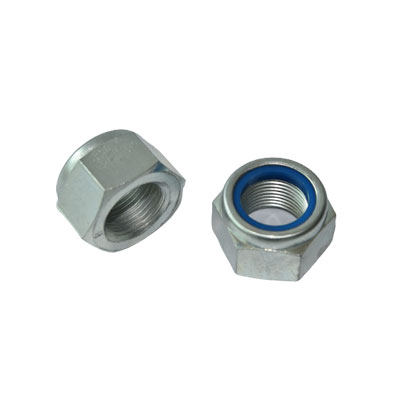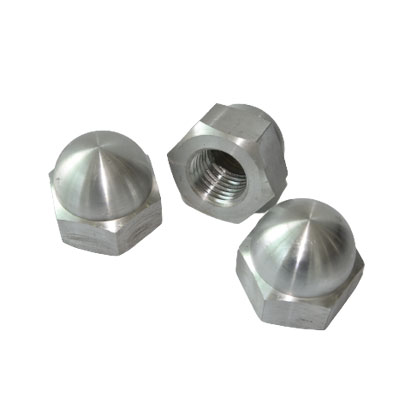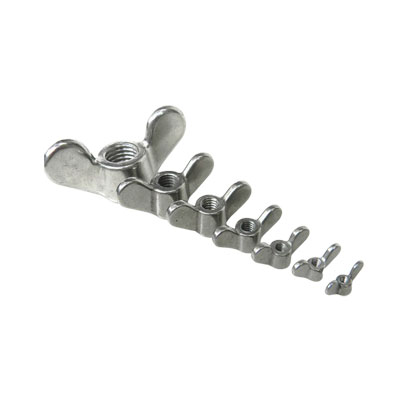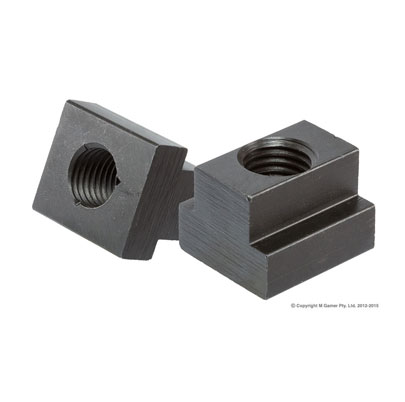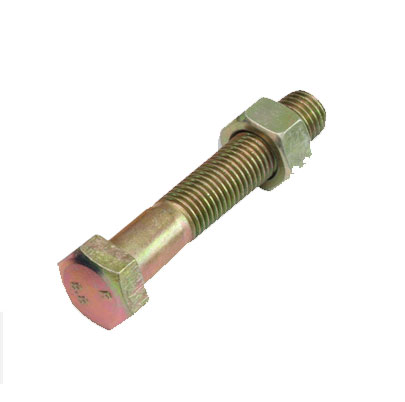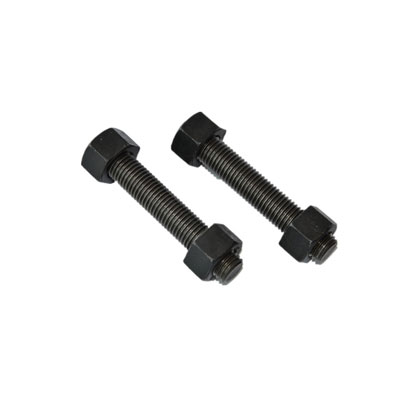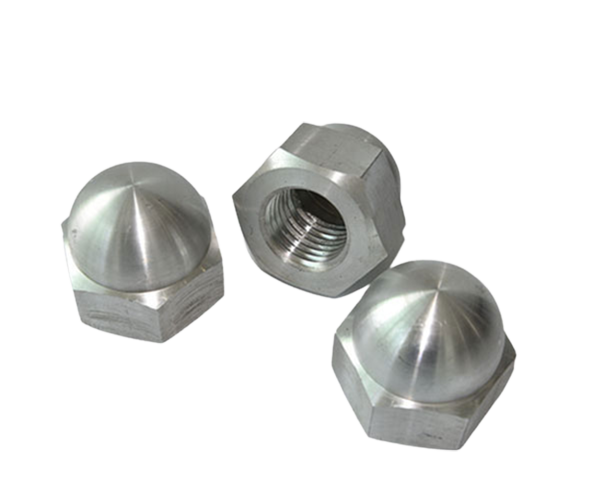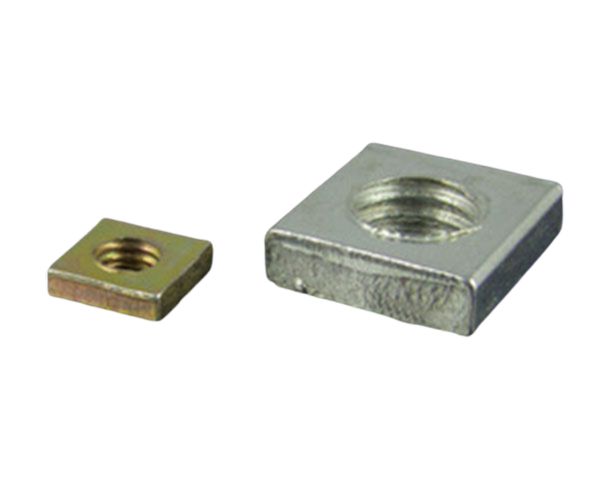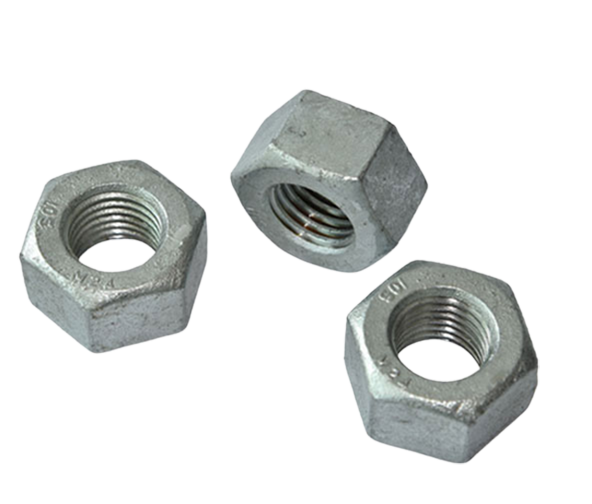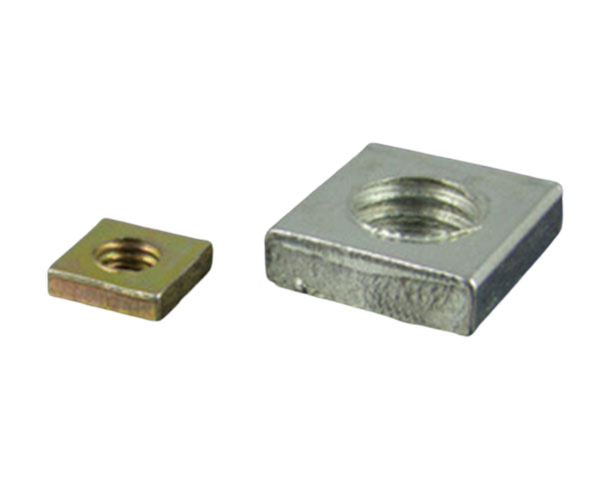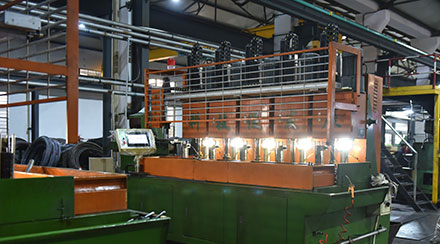As one of the commonly used fasteners in the mechanical industry, Flanged Nylon Locking Nuts are widely used. But do you really know the working principle of Flanged Nylon Locking Nuts? Today, Daitian Fastening will give you a detailed explanation of the tightening principle of Flanged Nylon Locking Nuts.
In fact, Flanged Nylon Locking Nuts rely on the friction between the nut and the bolt for self-locking. When the bolt and the nut are tightened together, the sharp teeth of the bolt tightly press against the wedge-shaped surface of the self-locking thread, thus producing a great locking force.
The working principle of Locking Nuts is to use frictional force between the nut and the bolt for self-locking
This self-locking reliability will be reduced under dynamic loads. In some important occasions, we will adopt some anti-loosening measures to ensure the reliability of nut locking. Locking Nuts are one of the anti-loosening measures. The anti-loosening effect of Locking Nuts mainly depends on the interaction force between the nut and the bolt-engaging thread. There are many ways to increase the interaction force between the engaging threads, such as improving the thread structure of the nut, increasing the roughness of the nylon in Nylon Nuts, and surface treatment of threads, etc.
The structure of Flanged Nylon Locking Nuts
How to judge the anti-loosening effect of Flanged Nylon Locking Nuts? The main judging standard is the size of the interaction force. The greater the mutual force between the nut and the bolt thread, the greater the anti-loosening effect. There are many ways to increase the interaction force, such as surface treatment of threads, structural modification of threads, etc.
Flanged Nylon Locking Nuts compared with ordinary nuts:
The stress point of an ordinary nut is mainly on the first and second teeth thread contact surface of the nut, while the other teeth are basically not stressed. So, in case of excessive tightening force, problems will arise. The first thread with concentrated stress is likely to deform due to bending and shear, and the second thread will take over the locking task of the first thread. With time and stress transfer, the later threads will be worn and deformed in turn. When all the threads are seriously worn out, the ultimate result is slipping.
Then what are the unique advantages of Flanged Nylon Locking Nuts? The reason lies in the unique structure of Flanged Nylon Locking Nuts. The stress of ordinary nuts is concentrated, while the stress of Flanged Nylon Locking Nuts is evenly distributed on each thread. Since the thread teeth of Flanged Nylon Locking Nuts are at the 30-degree position of the wedge-shaped inclined surface, the load of the helix line is relatively uniform. In this way, each part of the thread will produce anti-loosening frictional force, which can effectively resist lateral vibration, improve fatigue strength, and prevent loosening and slipping of screws. Self-locking thread has excellent anti-vibration ability, and its ability to resist lateral movement is three times that of ordinary threads.
 English
English
